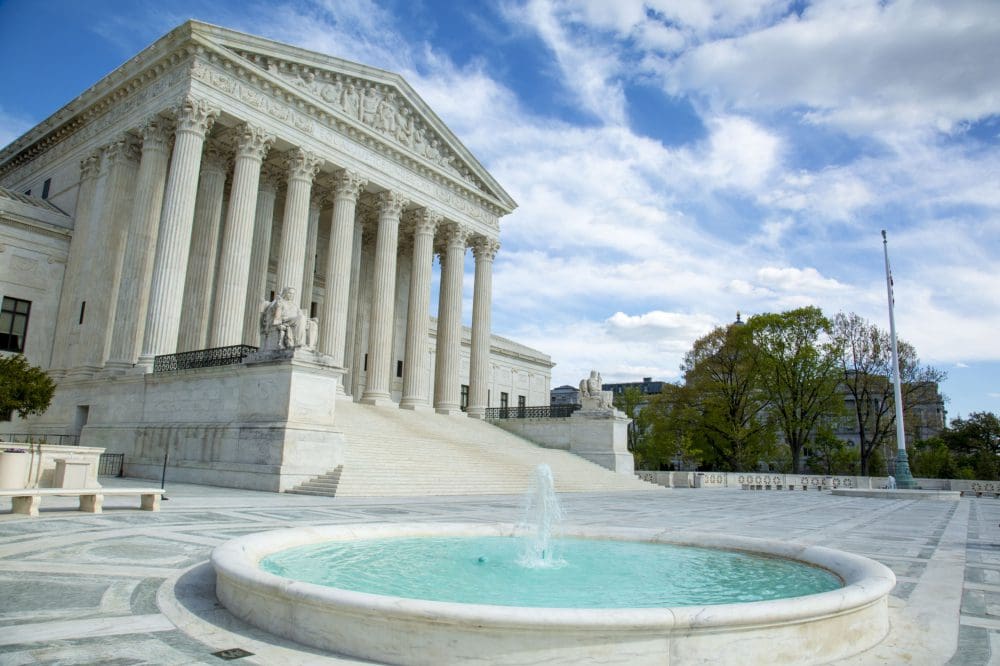After years of sidestepping the issue, the US Supreme Court has finally given a definitive answer on the question of partisan gerrymandering and its constitutionality.
On a 5-4 vote, the Supreme Court ruled this term that partisan gerrymandering is not a problem that can be addressed by the courts and that states are not prohibited from drawing maps in ways that achieve partisan aims.
Chief Justice Roberts wrote the majority opinion in the case, Rucho v. Common Cause, stating:
“Partisan gerrymandering claims rest on an instinct that groups with a certain level of political support should enjoy a commensurate level of political power and influence. Such claims invariably sound in a desire for proportional representation, but the Constitution does not require proportional representation, and federal courts are neither equipped nor authorized to apportion political power as a matter of fairness.”
States typically redraw their districts every ten years following the decennial census in order to recalibrate them to match with population shifts over the preceding decade. Longstanding federal law has prohibited states from drawing maps in ways that improperly balance the population of districts or in ways that discriminate on the basis of race.
Partisan gerrymandering is the negative term for the process whereby the party elected to office draws legislative and congressional district lines in ways that allegedly make it more likely the incumbent party will win future elections.
Liberal groups often sue against Republican-drawn maps, alleging they are drafted in a racially discriminatory manner. When they fail to find evidence to allege racist motives, they have sought to also challenge the maps on grounds they are drawn in a partisan manner. For decades the Supreme Court has sidestepped that issue, refusing to say whether courts should entertain claims of partisan gerrymandering.
Conservatives typically argue that elected representatives are the only group entrusted under the constitution with redrawing districts. Decisions about where to place district lines are inherently political, and therefore judges are ill-equipped and unqualified to substitute their judgement on such decisions for those of the people’s elected representatives.
This split between liberals and conservatives in the courts doesn’t translate to the legislatures, however. Democrats commonly use the redistricting process in states they control to gerrymander districts in ways that benefit their party. But Conservatives, conceding that such aims are constitutionally legitimate, do not bring suit against Democrat-drawn maps.
The State of Texas has consistently been at the center of the redistricting litigation, as liberal groups have accused Texas of drawing districts to favor Republicans. Now that the Supreme Court has ruled that partisan concerns can properly be considered in the redistricting process, it is no longer a question of if our State House, Senate, and Congressional Districts will be gerrymandered, but how?
The national Democrat Party has already set their sights on Texas, with US House Speaker Nancy Pelosi (CA-12) declaring Texas “ground zero” for 2020. The Democratic Congressional Campaign Committee has even opened a campaign office in Austin, Texas.
If the Democrats gain just nine seats in the Texas House, and retain the twelve they picked up in 2018, the Democrats will gain control during the year the Texas Legislature is tasked with redrawing the district lines.
If the Democrats win in 2020, you can be sure that they will draw the districts in a way that will ensure Democrat dominance of the Texas congressional delegation for the foreseeable future. If that happens, in the best-case scenario, a Democrat majority will block Republican redistricting plans and push the maps into the courts, where they are often drawn by liberal judges for the Democrats’ partisan advantage. In the worst-case scenario, they’ll secure the votes to pass a plan drawn for their partisan benefit. Either way, the Democrats will use their toe-hold in the Texas House to take over Congress and the Texas Senate and inflict permanent damage on the state and nation.





